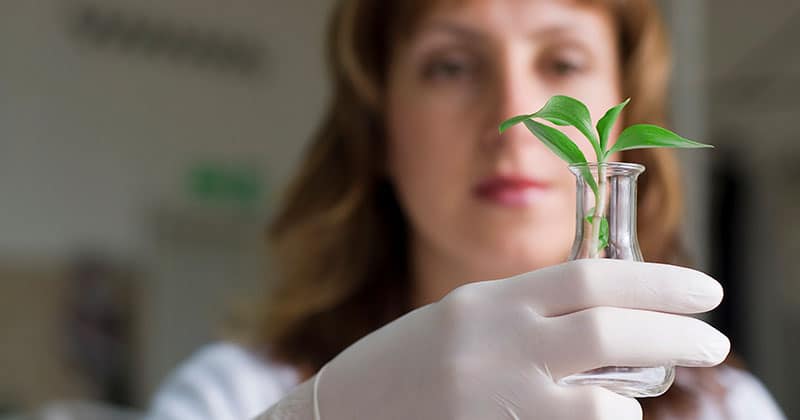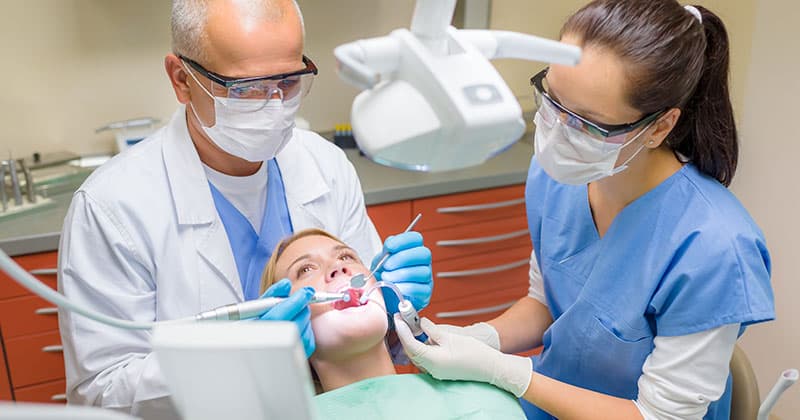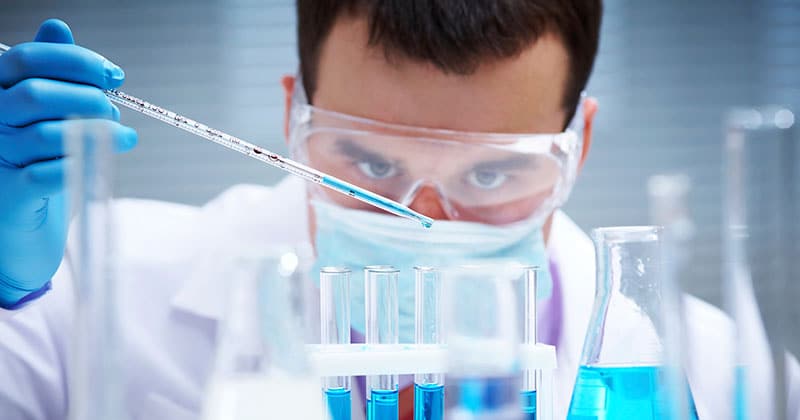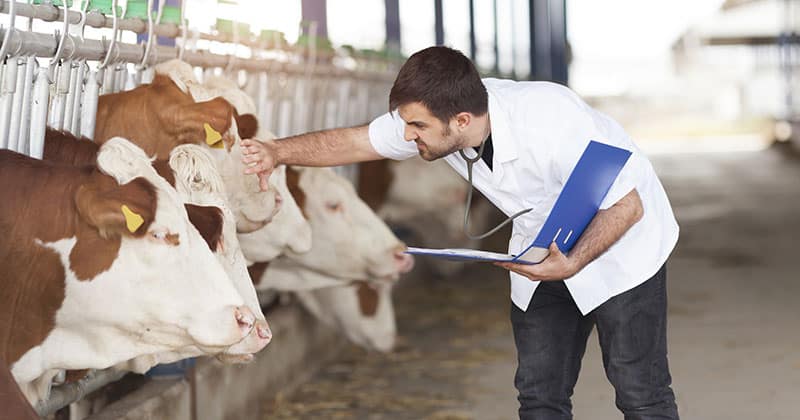Biology Careers List
This biology careers list shows what you can do with a biology degree. These are the top 15 careers for science graduates with a biology major.
You need to remember that biology is a fundamental science discipline. To keep progressing in biological science, you'll almost certainly need to do postgraduate study. And you'll probably need to do further study to branch into a related health, teaching or applied science field.
15 Biology Careers and Job Types
If you're thinking about studying for a biology degree, or you have one already, these are the kinds of jobs you could be doing. We've searched numerous job sites to come up with an a-z list of the 15 major types of careers where a biology degree is useful.
Biology is offered as a major in a 3-year Bachelor of Science degree in Australia. You can also do a double major, adding another specialisation in a science or non-science (e.g. business or arts) discipline. An honours (4th year) is also offered to students with good grades.
Earning a science degree is a significant achievement, and qualifies you for many graduate jobs (including in government, academia and private business). But, here, we're focusing on careers where biology is especially relevant to the work.
Dentistry
Knowledge of biology (especially human anatomy) is valuable for a dentistry career. After an undergraduate degree, you need to complete an accredited postgraduate program in dentistry, dental surgery or dental medicine. After this, you can register with the Dental Board of Australia to begin practice. If you’d prefer to be a dental hygienist, plan to complete a Vocational Education and Training (VET) qualification in oral health (dental hygiene).
Job titles: associate dentist, dental assistant, dentist, dental hygienist, dental surgeon, hygienist, general dentist, lead dentist, oral health therapist, oral surgeon, senior dental officer, senior dentist, senior dental assistant, senior dental nurse.
Environmental Science

A biology degree is excellent background for work in this field. Environmental scientists study the environment, drawing on their knowledge to create plans and policies for the protection of the air, water, flora, fauna, and other elements of the environment. A good way to transition from being a student to a professional is to gain significant field experience during your degree and to find an environmental science support job before or soon after graduating.
Job titles: associate environmental scientist, environmental consultant, environmental management system officer, environmental officer, environmental scientist, environmental scientist/planner, environmental scientist-contaminated land, principal environmental officer, senior ecologist, senior fisheries biologist.
Genetics

To work in this field, load up on genetics and chemistry units during your degree. Postgraduate courses in genetics can provide an important career boost, too. Genetics laboratory work involves conducting specific tests. Cytogenetics laboratories test to determine if medical conditions are caused by chromosomes, while molecular labs determine if there are any genetic mutations. Genetics counsellors require a specialised postgraduate degree. They help their clients understand how genetics relate to medical, psychological, reproductive, and familial issues and conditions.
Job titles: genetics counsellor, genetics laboratory manager, postdoctoral research fellow, professional svcs consultant-genetic/molecular, staff specialist-clinical genetics.
High School Teacher
Are you interested in teaching biology to high school students? You can enrol in a Master of Teaching (Secondary) degree program after graduating with biology qualifications. The preferred undergraduate program would combine biology studies with units in other fields. Second-learning-area options include mathematics, languages, humanities and social sciences, English, design and technology, and arts (media arts, visual arts, dance, drama, or music).
Job titles: biology teacher, head teacher-science, high school teacher, science teacher, secondary teacher.
Laboratory Technician
Your knowledge and expertise in biology will be useful in a career as a laboratory technician, such as one who works in a medical or microbiology lab. After you graduate with your degree, enroll in a laboratory technology postgraduate program. If you work as a medical laboratory technician, you’ll test human body specimens (such as blood and urine) to assist with disease diagnosis and treatment. Other duties might include preparing reports and ensuring compliance with quality control standards.
Job titles: lab and quality control technician, laboratory assistant, laboratory technical officer, laboratory technician, laboratory technician-microbiology, medical laboratory technician.
Medical Research
Medical researchers conduct experiments and other studies to investigate diseases and treatments. To build a career in this field, continue your education beyond the bachelor’s level, possibly obtaining a PhD or MD degree. These professionals are found in settings such as universities, hospitals and pharmaceutical companies. They enjoy an excellent average salary. Australia has a large medical research industry, supported by large public funding pools.
Job titles: clinical research associate, histology scientist, medical scientist, research assistant, research officer, research program officer, research scientist-medicinal chemistry/drug discovery, scientific officer-pathology officer or research scientist, trainee research assistant.
Medicine
To become a doctor, you must complete a four-year graduate entry medical degree program. You’ll need to sit the GAMSAT (Graduate Australian Medical Schools Admissions Test) exam to be eligible for admission into such a program. It’s a good idea to take courses in anatomy, biochemistry, and physiology during your undergraduate degree. Doing volunteer work and showing you’ve made contributions to the community could help make you more competitive in the medical school admissions process.
Job titles: anaesthetist-staff specialist, consultant-general physician, consultant-obstetrician and gynaecologist, emergency physician, general medicine physician, general practitioner, hospital scientist, infectious diseases physician, medical oncologist, neurologist, palliative medicine physician, physician, rural generalist, staff specialist-geriatric medicine, staff specialist-endocrinology, staff specialist-immunopathology, vaccine scientist.
Microbiology
Microbiologists study micro-organisms or microbes (organisms too small to see with the naked eye), such as fungi, viruses, bacteria, archaea, algae, protozoa, and prions. You can specialise in the subject by choosing relevant units within a Bachelor of Science degree. Most jobs will require postgraduate education, possibly to the PhD level (especially for university faculty positions). A curious mind and well-developed analytical skills are essential to success in this field.
Job titles: assistant microbiologist, microbiologist, microbiological laboratory technician, microbiologist-veterinary diagnostic.
Nursing
While nursing is rewarding and provides opportunity for advancement, it’s an extremely demanding occupation. If you’re an organised and energetic person, though, and want to devote your life to helping people, it might be the perfect career for you. After you finish your biology degree, apply to a graduate-entry master’s degree program (which is two years’ duration). Once you’ve finished your nursing education, you’ll need to get a license to practice in the profession.
Job titles: clinical nurse specialist (drug and alcohol), clinical triage coordinator, cosmetic injector, immunisation nurse, registered cardiac nurse, registered dialysis nurse, registered general nurse, registered nurse-cardiac cath lab, registered nurse-community services, registered nurse-diabetes educator, registered nurse-emergency department, registered nurse perioperative, registered nurse (renal unit), remote area nurse, research nurse, women’s health clinic nurse.
Pharmacist
For a career as a pharmacist, you’ll need to complete a Master of Pharmacy degree. This program tends to be very competitive, so you’ll need to work especially hard during your undergraduate studies and earn excellent grades. Relevant subjects are chemistry, biochemistry, physiology, and mathematics. An internship with a registered pharmacist follows the master’s program. Some of a pharmacist’s primary duties include preparing and dispensing medications, providing advice about medications, and facilitating health awareness in the community.
Job titles: clinical pharmacist, drug safety associate, intern pharmacist, pharmacist, pharmacy analyst, senior pharmacist, specialist pharmacist mental health.
Research Assistant
Research assistants often work in a laboratory environment. Many assistants are young researchers who are also studying for a PhD. Conducting experiments is the classic job activity. If this line of work interests you, you’ll need to demonstrate conscientiousness and meticulous attention to detail. Teamwork, as well as independent endeavours, are required. A biology degree with plenty of research and laboratory experience is ideal. Being a research assistant is a path towards becoming a primary researcher.
Job titles: bioinformatics research assistant, director’s research assistant, research assistant, research assistant-network biology, research assistant-vector and genome engineering facility, technical assistant, research support officer.
Research Scientist in Bioinformatics
To be a research scientist in bioinformatics, you’ll essentially have to earn a doctorate degree. You’ll also need excellent research and writing skills, with the ability to get articles published in scientific journals. Jobs in this field may require several years of postdoctoral research, or at least equivalent experience in bioinformatics, information science, or genetics. One of your primary duties in this career will be to use computer technology for the collection, organisation, and utilisation of biological information.
Job titles: assistant scientist spatial imagery, bioinformatician, bioinformatics research assistant, data scientist / biostatistician / bioinformatician, postdoc in single-cell analysis, postdoctoral researcher, postdoctoral scientist, research assistant, research associate, research officer, research scientist-bioinformatics, scientist, senior research officer.
Research Scientist in Computational Biology
You’ll likely need a PhD in the field as well as postdoctoral or other experience for this job. You might be required to know how to write computer programs as well as do statistical analysis, and will need highly developed analytical and communication skills. A record of journal publications and conference presentations will give you an edge in job search. Research scientists in computational biology create computer models of biological systems. They often work closely with researchers in bioinformatics.
Job titles: data scientist genome analysis (postdoctoral fellowship), postdoctoral fellow (imaging), postdoctoral research fellow, postdoctoral research officer, postdoctoral researcher, postdoctoral scientist, research scientist in applied biological modelling, research scientist-computational biology, scientist, senior research officer.
University Lecturer or Professor
As a biology lecturer or professor at a university, you’ll most likely be combining teaching duties with a research career. A PhD is generally required for professorial positions. A good career strategy while studying is to take every opportunity to be published, and to participate in academic conferences and other professional forums. If you truly love biology and want to devote your life to its study, becoming a professor or lecturer might be the right career path for you.
Job titles: lecturer-marine biology, lecturer-biological sciences, research scientist-quantitative geneticist, scientist.
Veterinary Science
Do you love animals? To become a veterinarian, you’ll need to complete a Doctor of Veterinary Medicine (DVM) program after your undergraduate biology degree. If you’d prefer a career as a veterinary nurse, you should earn a Certificate IV in Veterinary Nursing. A 24-month traineeship might also be available. You’d assist veterinarians in providing animal care, and carry out a range of other duties such as administering medication to animals, sterilising surgical equipment, and maintaining medical records.
Job titles: associate veterinarian, certified veterinary nurse, small animal surgeon, emergency veterinarian, equine veterinarian, senior research veterinarian, senior veterinary laboratory scientist, trainee vet nurse, veterinarian, veterinary cardiologist, veterinarian-internal medicine specialist, veterinarian-small animal oncology, veterinarian-small animal surgeon, veterinary nurse, veterinary surgeon.
Jobs in Australia
Being a biologist (or 'life scientist') is a relatively niche profession in Australia, with only around 7,000 employed in that broad field. The group consists of biologist, anatomist (or physiologist), biochemist, biotechnologist, botanist, marine biologist, microbiologist and zoologist.
The best employment prospects may be with some of the larger occupational categories, including nursing, teaching, medicine, pharmacy, and environmental science.
Projected job numbers by 2022
| Registered Nurses | 349,100 |
| Secondary School Teachers | 139,000 |
| General Practitioners | 81,700 |
| University Lecturers and Tutors | 50,400 |
| Pharmacists | 32,400 |
| Environmental Scientists | 31,600 |
| Medical Laboratory Scientists | 24,900 |
| Dental Practitioners | 15,300 |
| Veterinarians | 11,800 |
| Life Scientists | 6,900 |
Source: Department of Employment, Australia 2017
Resources: Biology fields (UniMelb)









